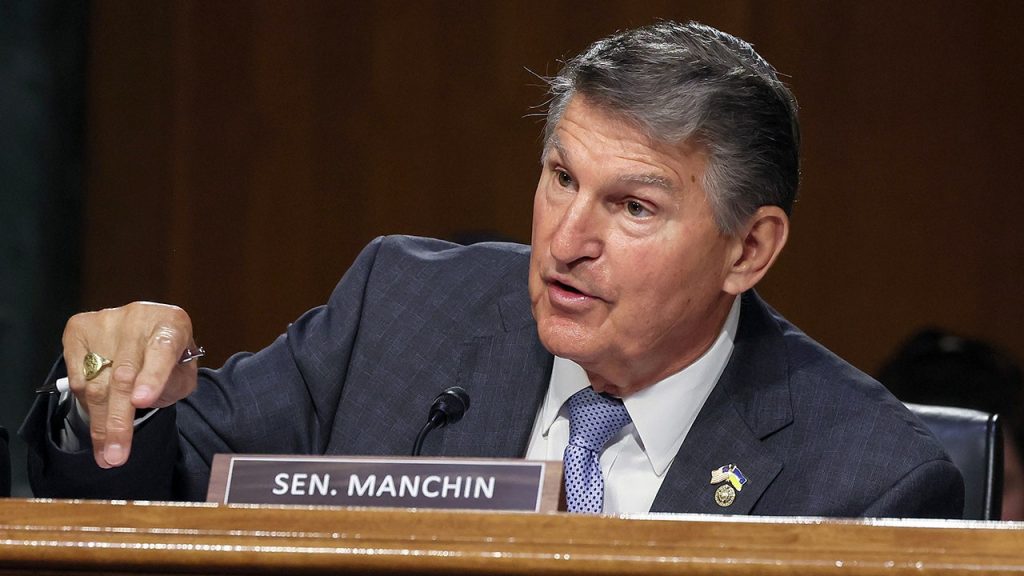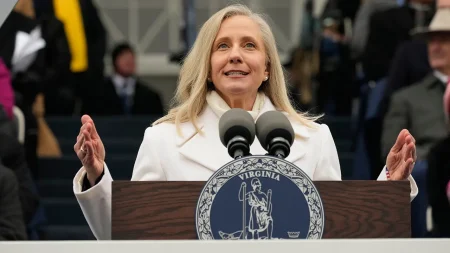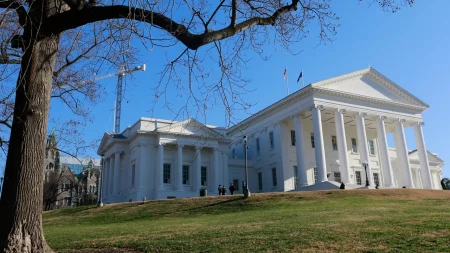President Biden’s decision to commute the death sentences of 37 federal inmates to life imprisonment without parole has sparked controversy, particularly the cases of Chadrick Fulks and Brandon Basham, convicted for the 2002 murder of 19-year-old Samantha Burns. Senator Joe Manchin, representing West Virginia, vehemently criticized the commutations, calling them “horribly misguided and insulting,” especially given the pleas of the victim’s family against such action. Manchin emphasized the emotional toll on the Burns family, highlighting their unheard pleas to both President Biden and the Department of Justice. He expressed his deepest sympathy and assured them of his continued support.
The case of Samantha Burns centers around the escape and subsequent crime spree of Fulks and Basham in 2002. Escaping from a Kentucky detention facility, they embarked on a 17-day rampage across multiple states. The culmination of their criminal acts was the murder of Samantha Burns, for which they pleaded guilty to carjacking resulting in death. This brutal act forms the basis of Senator Manchin’s strong opposition to the commutation of their sentences, emphasizing the severity of their crime and the disregard for the victim’s family.
President Biden’s rationale for the commutations rests on his broader opposition to the death penalty at the federal level, except in cases of terrorism and hate-motivated mass murder. He framed the commutations as consistent with his administration’s moratorium on federal executions. While condemning the actions of the inmates and acknowledging the suffering of the victims’ families, Biden reaffirmed his belief in the need to abolish capital punishment. This fundamental difference in perspective underscores the clash between his administration’s policy and the sentiments expressed by Senator Manchin and the Burns family.
The contrast between Biden’s position and Manchin’s critique highlights the complex debate surrounding capital punishment in the United States. Biden’s decision reflects a growing movement to abolish the death penalty, fueled by concerns about its morality, potential for error, and disproportionate impact on certain demographic groups. Conversely, Manchin’s stance represents the view that the death penalty serves as a just punishment for heinous crimes and provides closure for victims’ families. The Burns case serves as a microcosm of this larger debate, showcasing the human impact of these policy decisions.
The political landscape further complicates this issue. Manchin, a Democrat-turned-independent, has frequently diverged from his party’s line, particularly on issues like energy and judicial appointments. His criticism of Biden’s commutation decision further underscores his independent stance and his willingness to challenge the administration’s policies, even on sensitive issues like criminal justice reform. This adds another layer to the political dynamics at play, particularly as Manchin nears the end of his Senate term.
The commutations also drew sharp criticism from former President Trump, who, in a characteristically fiery social media post, directed harsh words towards the inmates. This further politicizes the issue, injecting partisan rhetoric into an already sensitive debate. The starkly different reactions from Biden and Trump, combined with Manchin’s vocal opposition, highlight the deep divisions within the American political landscape regarding criminal justice reform and the future of the death penalty.















